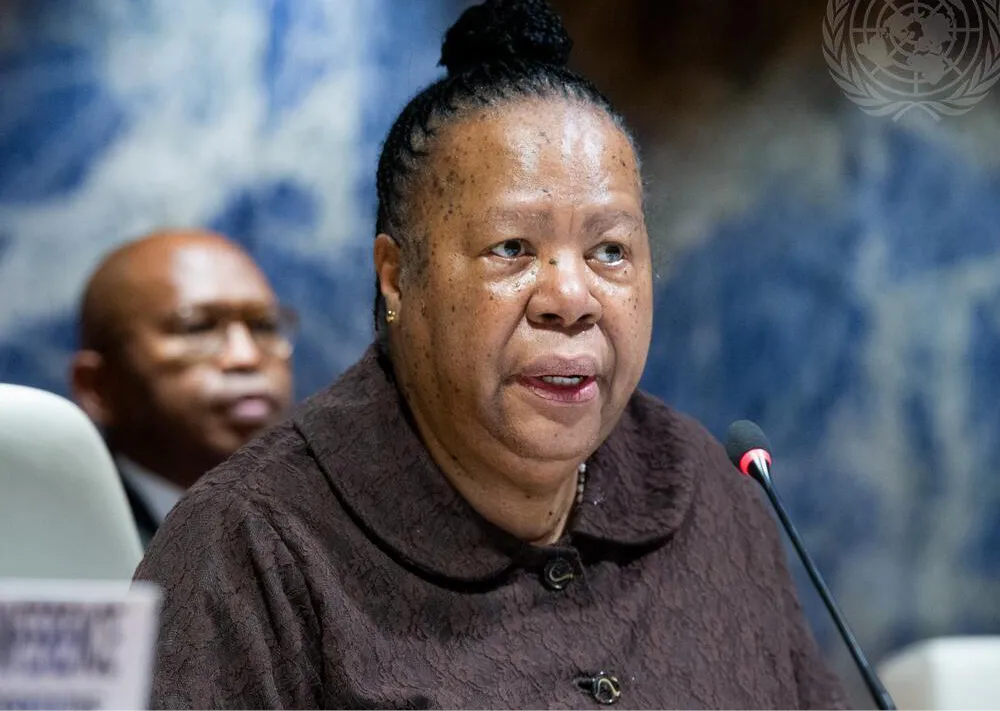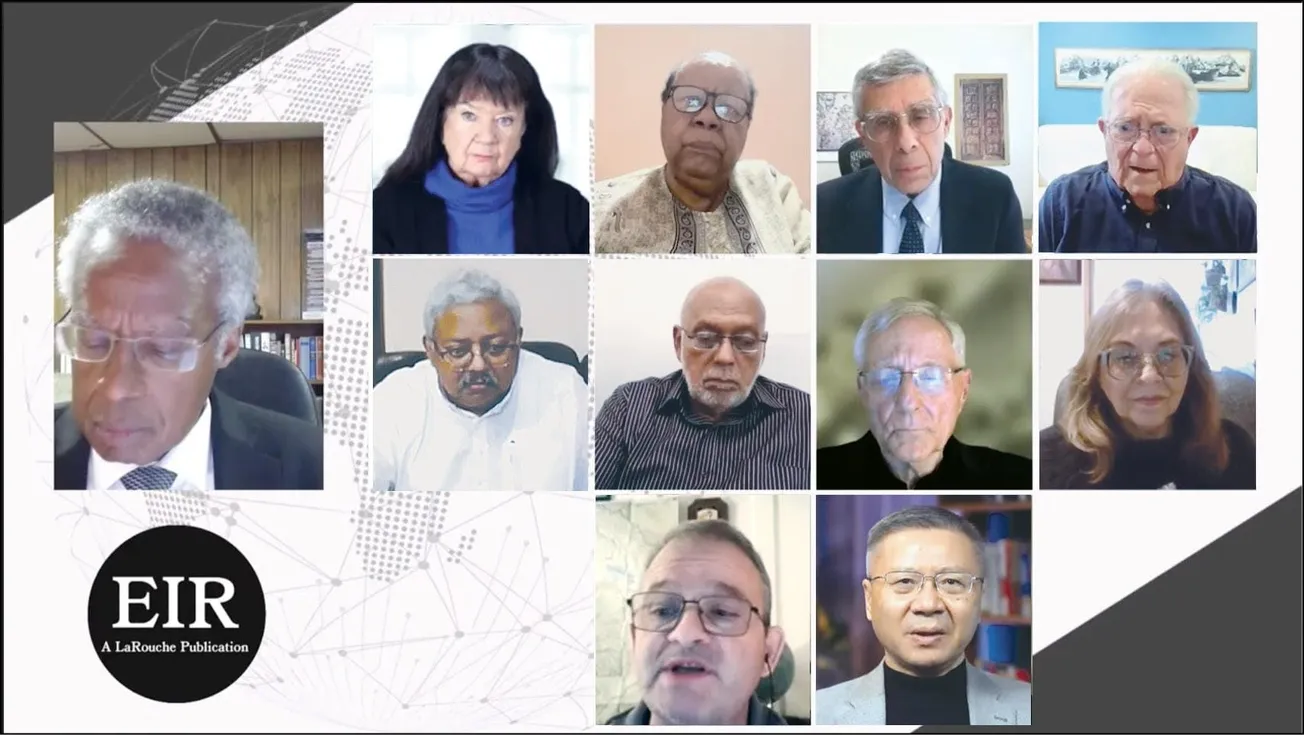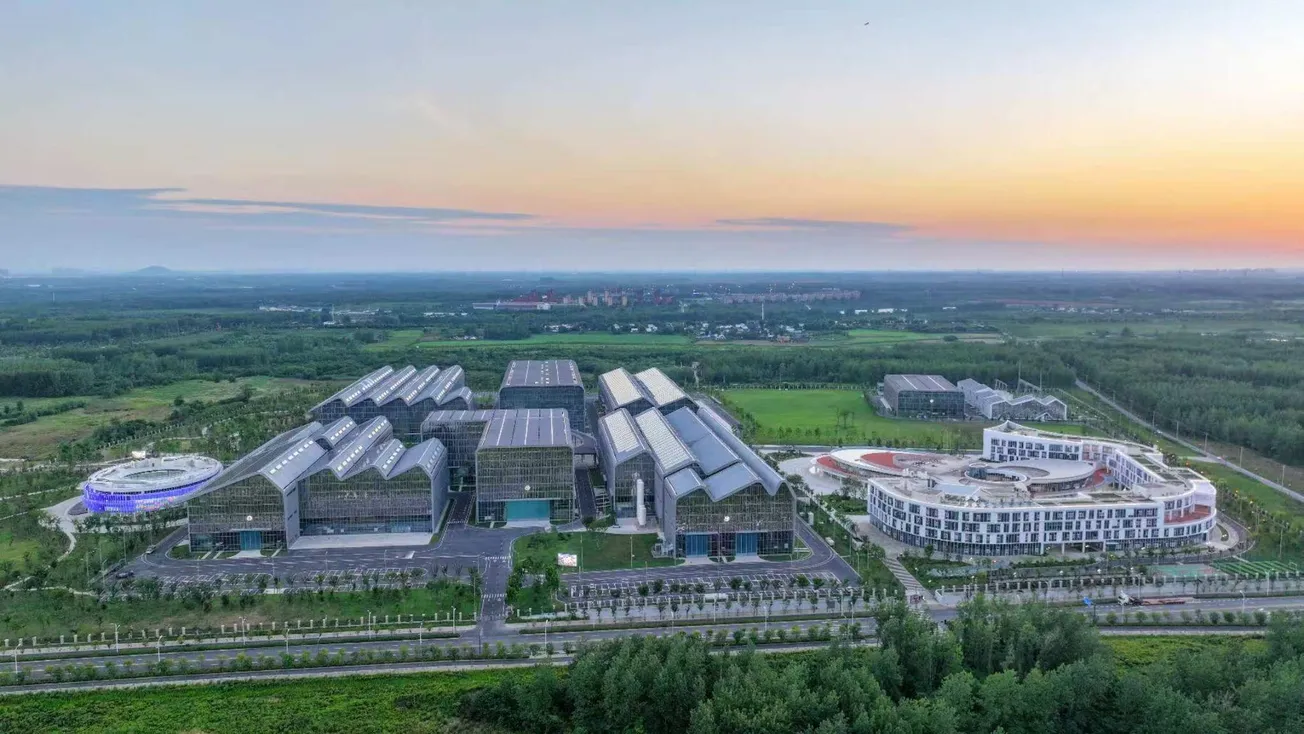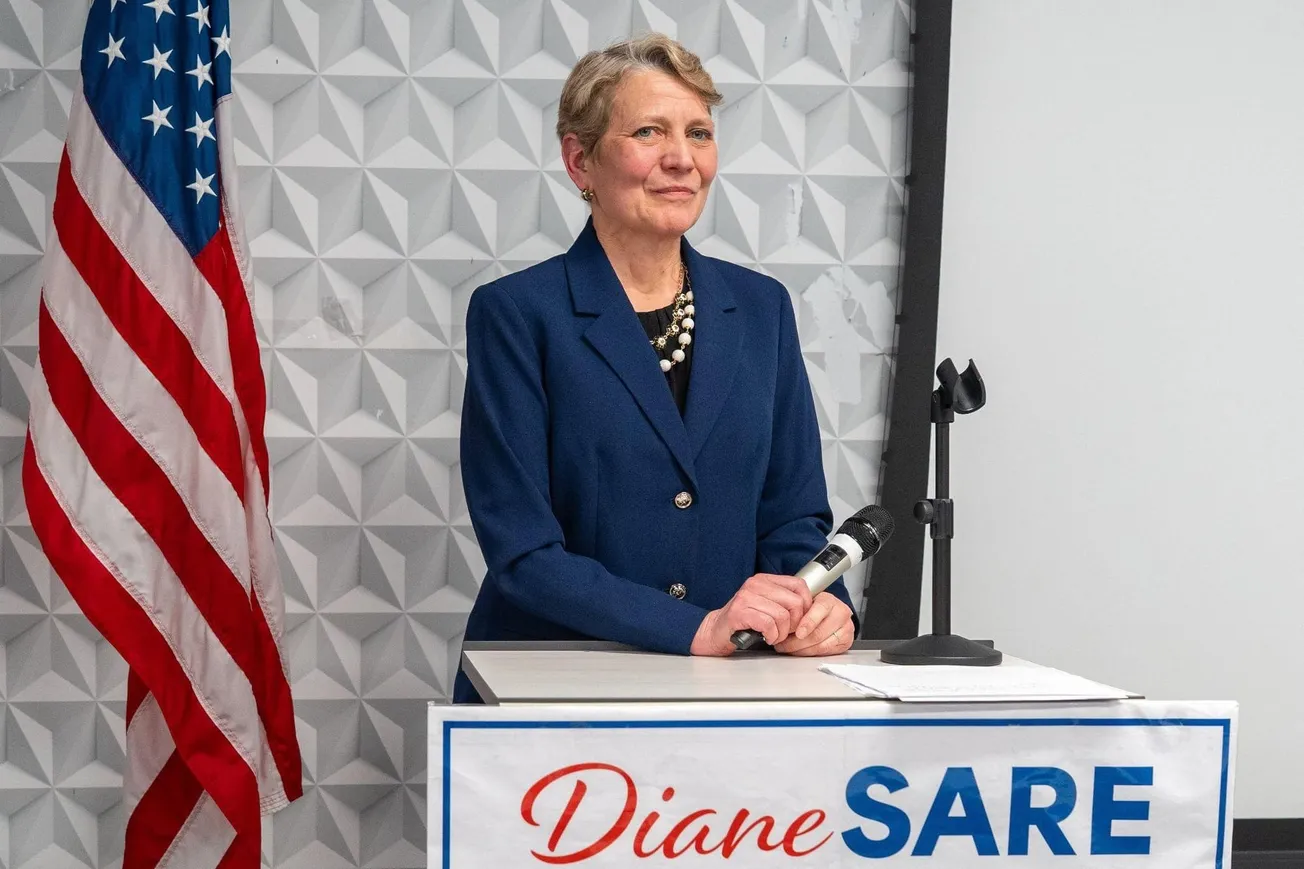South African Foreign Minister Naledi Pandor travelled to the U.S. and Jamaica, March 18 to 26, to clarify misconceptions about South Africa and its vision for the world, holding many meetings and speaking events, both public and private, including with members of government, members of Congress, business leaders, academics, and religious figures. In doing so, she was also looking for “the better angels of our nature,” as Abraham Lincoln once put it. South Africa has been under attack recently because of its refusal to be railroaded into an anti-China and anti-Russia crusade, and for its courage to stand up to the obvious Israeli genocide ongoing in Gaza. It has even become the subject of a bill in the U.S. Congress calling for a reevaluation of America’s relationship with the country.
South Africa, however, has refused to be bullied in this way and has instead defended its independent identity and principles. At the end of last year, its government initiated proceedings against Israel at the International Court of Justice, alleging that Israel’s ongoing, retaliatory slaughter of Palestinians in Gaza violates the UN Convention on Genocide. This action has caused some furor in the Biden Administration and in the U.S. Congress, who deem applying such a measure against its closest ally in the Middle East as absolutely unacceptable.
Earlier this year, two Republican Congressmen introduced legislation into the U.S. House of Representatives calling for a general reduction in U.S. relations and trade with South Africa if it does not distance itself from China and Russia, and take an open stand in support of Ukraine in NATO’s war against Russia. According to Dr. Pandor, bending to such pressure from the U.S. would violate South Africa’s “sovereign independence.”
Minister Pandor is intent on clarifying the motivations behind South Africa’s positions and actions, both for the Administration and for Congress. She participated in a public event at the Carnegie Endowment for International Peace in Washington on March 19, where she underlined the changes that have occurred in the world economy over the last few decades, in particular the emergence of the countries of the Global South as a major force in the international arena. She said that South Africa fully supports the global world order based on the United Nations, but indicated that, in light of these changes, there must also be changes in the United Nations and in the Bretton Woods institutions.
She rejected the accusation that South Africa was taking sides with the “authoritarian nations” against the “democracies.” The notion of “authoritarian countries” was “not in her logbook,” she said, noting that countries may have differences between them, but that shouldn’t lead them to brand each other as enemies. When asked about the failure to bring about an end to the genocide in Gaza, she replied,
We as humanity need to look at ourselves in horror and dismay, and we need to be really worried that we are setting an example for those really authoritarian regimes.
Pandor also rejected the claim that South Africa was siding with Russia in its conflict with Ukraine. “We talk to both sides,” she said, and noted that South Africa has participated in all the “working groups” called by Ukrainian President Volodymyr Zelensky to discuss the conflict. “But we also insist that there have to be talks with Russia,” she emphasized, noting that the issue of “security” involved all the parties at the table. She also indicated that President Zelensky would be coming to South Africa sometime this year.
Looking for ‘the Better Angels of Our Nature’
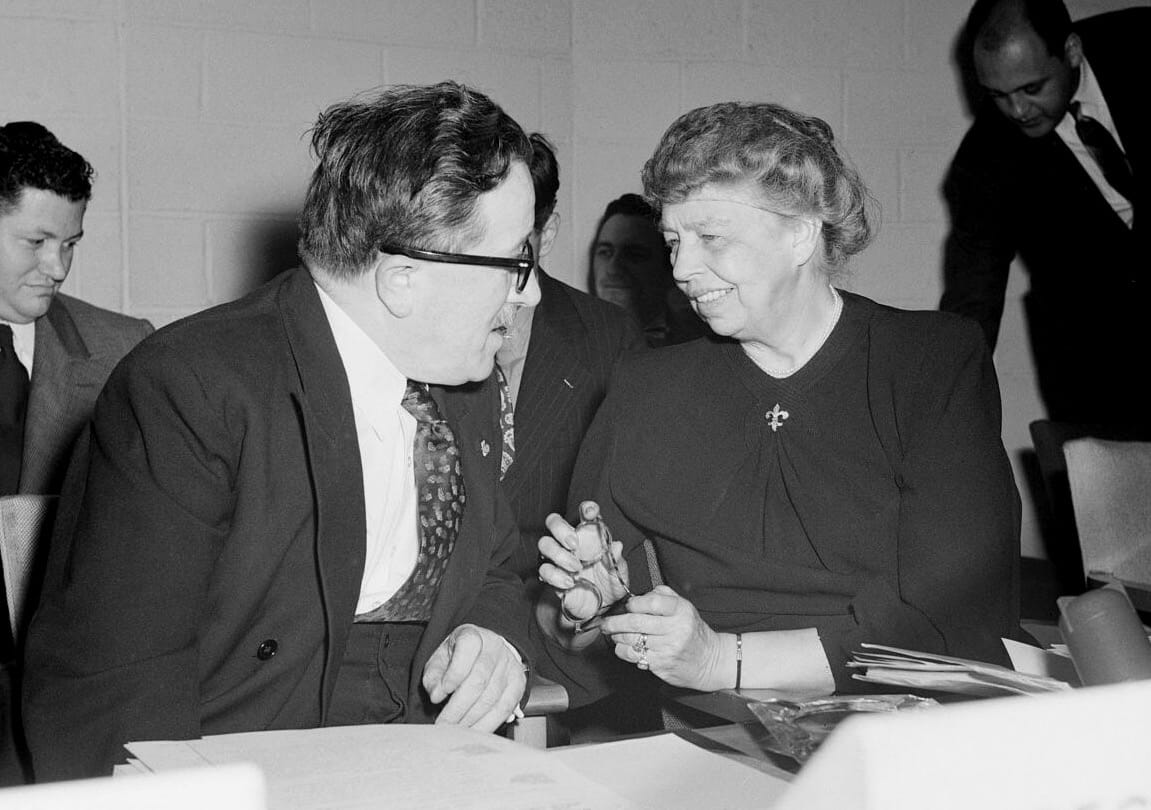
The South African Foreign Minister is also on something of a fact-finding mission while she is in the United States, visiting civil society organizations and think-tanks to see if the real America, as she has known it, is still intact. For example, she participated in a roundtable discussion with the U.S.-Africa Business Center of the U.S. Chamber of Commerce. She also met with leaders of religious organizations, which included speaking at a meeting organized by the Muslim Public Affairs Council at the South African Embassy.
Minister Pandor addressed a reception in Washington honoring both American activists who assisted South Africa during its struggle against apartheid, and the South African diaspora. Dr. Pandor is, in fact, an old friend of the United States. As she explained in an interview with EIR’s Marsha Freeman, published in the Winter 2011/2012 issue of 21st Century Science & Technology, she took much of her inspiration and her vision as a young woman from Eleanor Roosevelt, and expressed, at that time, the hope that she would see that vision again become a reality in the United States. It must unfortunately be admitted that official U.S. policy has deviated drastically from the days of the Franklin Roosevelt Administration, and most especially from the vision of First Lady Eleanor Roosevelt, but it is not entirely extinguished in the hearts of Americans.
When asked about her intent to talk with the organizations of “civil society” outside of the Washington Beltway—she travelled, for example, to Chicago—she said that she had an interest in understanding—
the degree to which they continue to be aligned with the values that drove many organizations to support South Africa’s struggle against apartheid, to have an appreciation as to whether these values still hold, or whether they are so fundamentally altered that we are dealing with a totally different America.
At an informal and private meeting March 20 at Howard University’s Center for African Studies, Minister Pandor elaborated more fully on the reasons that South Africa raised the genocide issue at the International Court of Justice. She noted that South Africa had learned about democracy and human rights from the example of the United States, and that they took these lessons seriously. These criteria should encompass all countries, she stressed, and when a country violates those norms, they should also be held to task, whether you like them or not. She totally rejected the attempt to characterize those who condemned Israel’s bloody operation as “anti-Semitic.” When you go into a country and declare that you wish to eliminate the problem of hostility among the people by killing them or expelling them, it is quite clear that you are committing genocide, she said.
She cited the African philosophy of Ubuntu, variously translated as “humanity towards others” or “that we share a common humanity,” to describe South Africa’s principled stance today. There can be no “double standards” among nations in that respect, she insisted. At Carnegie, when asked about the need to establish global “norms,” she put it this way:
There is the impression that the weak must respect [the rules], the weak should implement them, but the powerful can do what they want, and they will not be found wanting in any way.
During the Q&A at Howard, she also pointed to the South African experience during apartheid, no doubt reflecting the way South Africa views Palestine and Hamas. In South Africa’s fight against apartheid, she said, they first issued resolutions demanding a change in the status of black Africans in the country. When that did not work, they then organized protests. But when these were crushed, they had to organize an underground, which carried out a variety of more forceful actions. That was the last resort, she noted, but it ultimately changed the conditions in the country and brought down apartheid.
Pandor also made the point that there should be no attempt to divide African nations based on geopolitical issues, referring to the U.S. attempt to organize African countries into an anti-China front. She emphasized that South Africa supported the international order based on the United Nations. This doesn’t preclude reform of the UN, she added, stressing in particular the need to reform the Security Council, where important measures can be stopped by the vote of a single country. “The United Nations must be able to act on questions of peace and security,” she said.
She said that her number one message to the United States was that if you harm South Africa, you harm Africa, and that the U.S. and South Africa should work together as partners.
In response to a question on “climate change,” she gave a clearcut answer as regards priorities. “You can’t talk about the environment without talking about development,” she said. She stressed that concern for the environment can only be implemented when you have “sustainable development.” She also emphasized the importance of scientific cooperation between the U.S. and South Africa, in particular, praising the role that Howard University had played in promoting such cooperation through the years.


